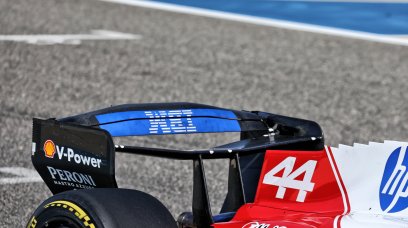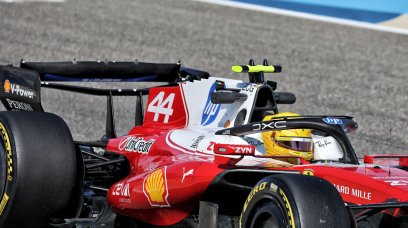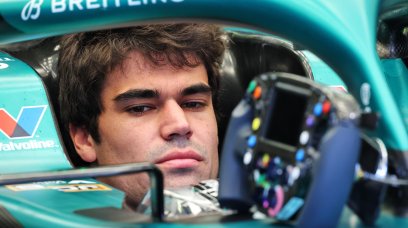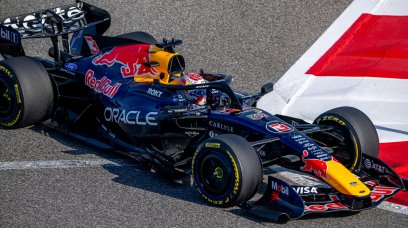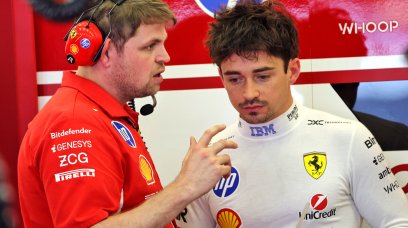Incredible as it seems, 60 years ago Formula 1's rule book consisted of just four pages plus a few articles contained within the International Sporting Code (ISC) issued annually by the FIA's International Sporting Commission. Those regulations contained real gems such as, for example: 'Minimum weight of car without ballast: 450kg in working order including lubricant and coolant but without fuel'; 'A fastening system for safety belts is demanded, the belt being optional'; and 'The [fuel] filling port(s) and cap(s) shall not protrude beyond the coachwork material'. Protests were basically unheard of and when lodged were usually quickly dispensed with through lack of evidence – television was a novelty accorded no more than three or four races per annum, while in-car cameras were yet to be invented. Internet and data recording? Far into the future for private use and used mainly by geeks. The governing body itself was prosecutor, witness, judge and jury rolled into one.
The times, they are a changing
Teleport 1960s stewards into 2023 race control tower, and they would be utterly bewildered: F1's current technical regulations run to 187 pages; the sporting equivalents to two-thirds that – and since 2021 the sport has operated to a budget cap adding a further 54. The first draft of the 2026 regulations adds another 15; 2026 sees F1 introduce separate sporting and financial for power units – bank on another 30 or so. The ISC? The 2023 version comprises 86 pages even before as many appendices as the alphabet has letters are factored into the equation. Then there are 'rule clarifications', Technical/Sporting Directives and a set of Race Director Notes per Grand Prix day. Driver and Sporting Director briefings held (at least) once per event provide further 'clarifications' about what may (or not) be permitted, at times on a one-off basis. As F1 developed so its regulations evolved and in (too) many instances become unwieldy and contradictory in parts. Team members thus need to memorise over 400 complex pages and be able to recite all provisions on demand, mostly under pressure. Worse, a quartet of stewards needs to interpret not only what was written into the rule books but how reasonable persons would read the provisions and make snap judgement calls. No wonder, then, that inconsistencies are bound to creep into verdicts – particularly when races are as chaotic as the recent Australian Grand Prix. No sooner had they worked through complex restart procedures than a series of multiple accidents distracted officials all over again. F1 cars are fitted with a minimum of three cameras – front and/or rear facing for TV, helmet cam for driver eye views and the FIA high-speed accident data recorder – all accessible live. Add in fan footage which is invariably uploaded to social media within seconds and there is plenty of material to choose from, but the flipside is the entire world soon has access to recordings and every F1 viewer has an opinion which is soon posted.
FIA's new Operations Centre
Sure, the FIA's Remote Operations Centre situated in its Geneva base provides further perspectives and guidance in real time so their job should be easier on account of all the data available, including a list of similar past incidents and their penalties. In fact, the opposite at times could apply due to info overload. The trick is therefore to sift the salient from the misleading, and that is no easy task given the enormous stakes. Rewind to Jeddah where stewards were required to judge whether Fernando Alonso's crew worked on his car while serving a time penalty. As the Spaniard celebrated his 100th career podium, news filtered through the rear jack was in contact with the car – in breach of the rules – but his Aston Martin team argued that during recent Sporting Director sessions they all (verbally) agreed the practise should be permitted. The penalty was reversed under appeal and George Russell (Mercedes) demoted to fourth, culminating in the Briton subsequently driving 15 kilometres from his team's factory to the Green Team's base to hand the cup to its 'rightful' owner. The FIA has since clarified that no person (save the driver) or tool may touch a car while serving a pit lane penalty – save that brake cooling fans may be inserted. So another exception… This incident perfectly encapsulates the root of F1's regulatory issue: F1 teams have too much power.
Commercial linked to political matters
Where back in 1963 the FIA (via the ISC) framed and imposed regulations – tough if they didn't suit entrants – under current governance procedures the teams collectively have the same regulatory powers as do the FIA or commercial rights holder Liberty Media, owner of F1's rights for 100 years! Think about that. The reason is simple: Where once F1 was driven by technical and sporting issues, the sport since 1998 (when the FIA leased out F1's commercial rights, initially to Bernie Ecclestone) revolves around commercial ideals, latterly Liberty's NASDAQ share price. Indeed, it is oft said that during his Ferrari team boss tenure Stefano Domenicali devoured sports papers each morning; today the now-F1 CEO reads Wall Street Journal. Thus, the commercial rights holder lives in fear of teams – particularly the Big Three, Ferrari, Mercedes and Red Bull – exiting F1 due to dissatisfaction with the rules, thus knocking the share price. Hence, they wield disproportionate powers such that they can collectively block rule changes save where introduced for safety reasons. With each major team having at least one customer team they effectively control the 10-strong team vote. However, so distrustful are teams of the others' motives that any proposal is bi-and dissected 20 times before being debated, and by the time decisions need to be taken a number of complications will have been added to the original proposal to appease some or other entity. A decade ago Peter Sauber, then-owner of the eponymous team now racing as Alfa Romeo, summed up the situation perfectly. From 2006 to 2009 the Swiss was effectively out of the sport after BMW acquired his team; when the Blue / White roundel exited abruptly he returned unexpectedly. So I asked him upon his return what had changed in F1 in three years. "Before I tell you what has changed," he said slowly. "I'll tell you what hasn't: The teams’ inability to take decisions until it is too late, then they are forced to compromise – which is the worst possible scenario..."
Azerbaijan Sprint race
For proof hereof consider the Azerbaijan Sprint qualifying format experiment, whereby the event features two qualifying sessions, one for each race: Despite being discussed regularly the matter went nowhere until a decision needed to be taken during the Australian Grand Prix team boss meeting – the last such opportunity before Baku's race. Finally, there was unanimity – it seems the trial will proceed, pending FIA approval. All of which means that with a fortnight to go fans don’t know how many qualifying sessions the weekend has. Why could this not be sorted a year ago? When Liberty acquired F1’s commercial rights in 2017, one of their earliest objectives was a total revamp of the regulations – at the time described as being akin to a rickety old house that had all its cracks papered over rather than being renovated – with the project to be overseen on a consultancy basis by an experienced Sporting Director, a number of whom had slid into retirement. At the time the teams proposed that the rewrite be delayed until the (2021) 'new era' regulations were in situ, then came Covid and their introduction was pushed out a year. F1 is now focussing on 2026 power unit regulations, with the teams suggesting that any rewrites wait until after that date. One wonders what the next excuse will be – yet the same teams are the first to point fingers at stewards for inconsistent rulings… Dieter Rencken has attended three FIA stewarding/race director seminars.
Most read
